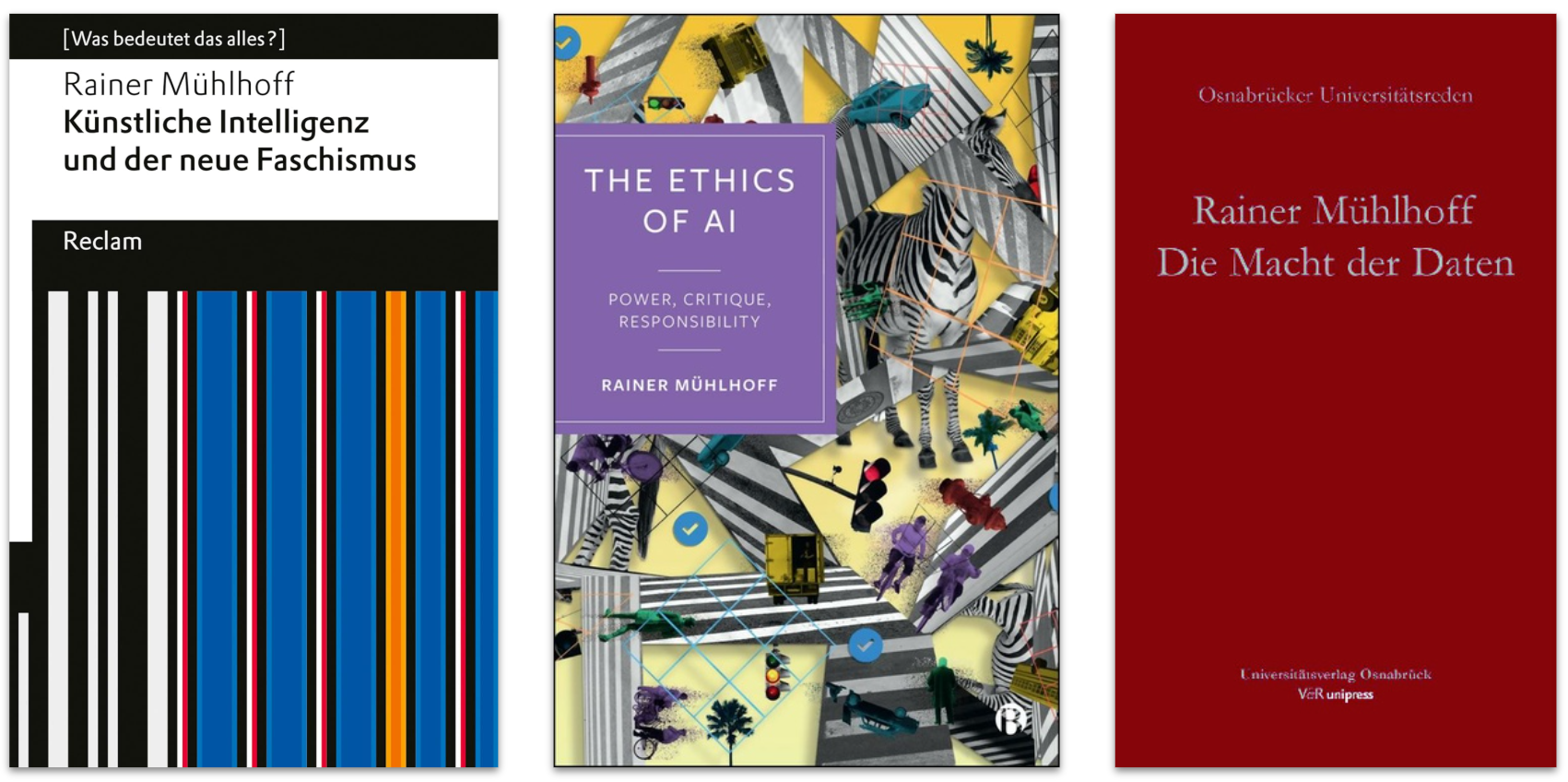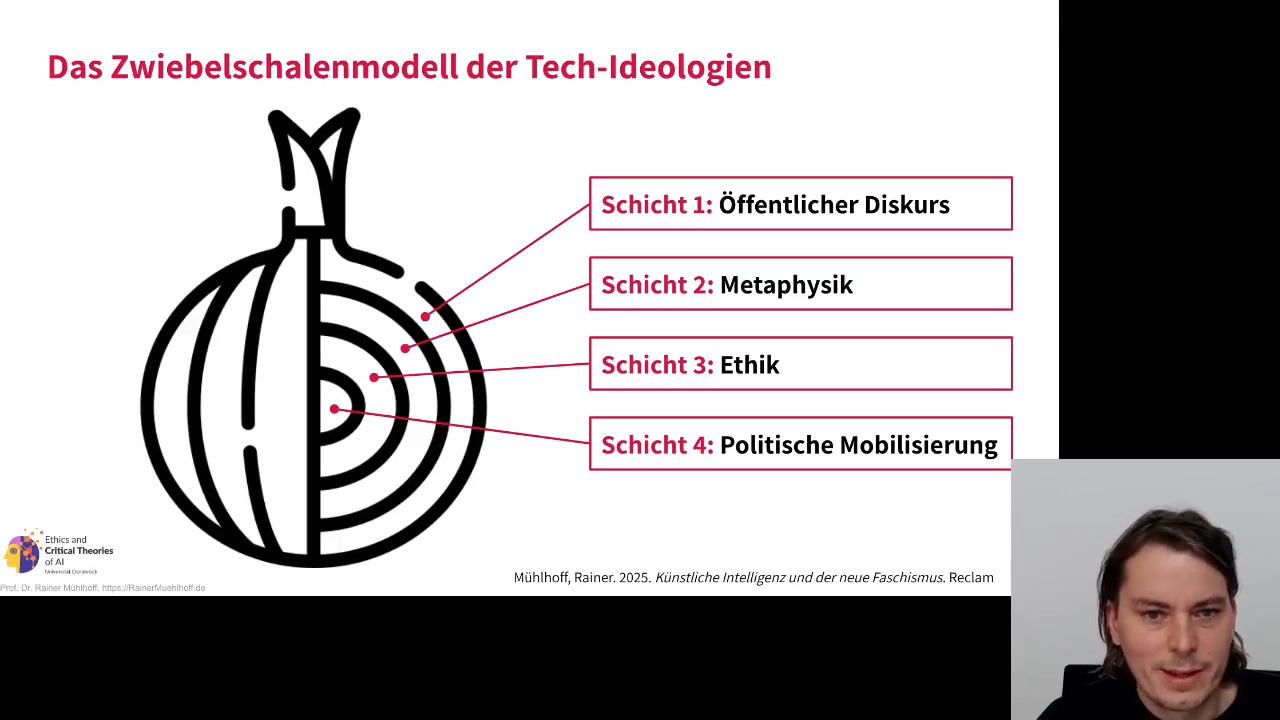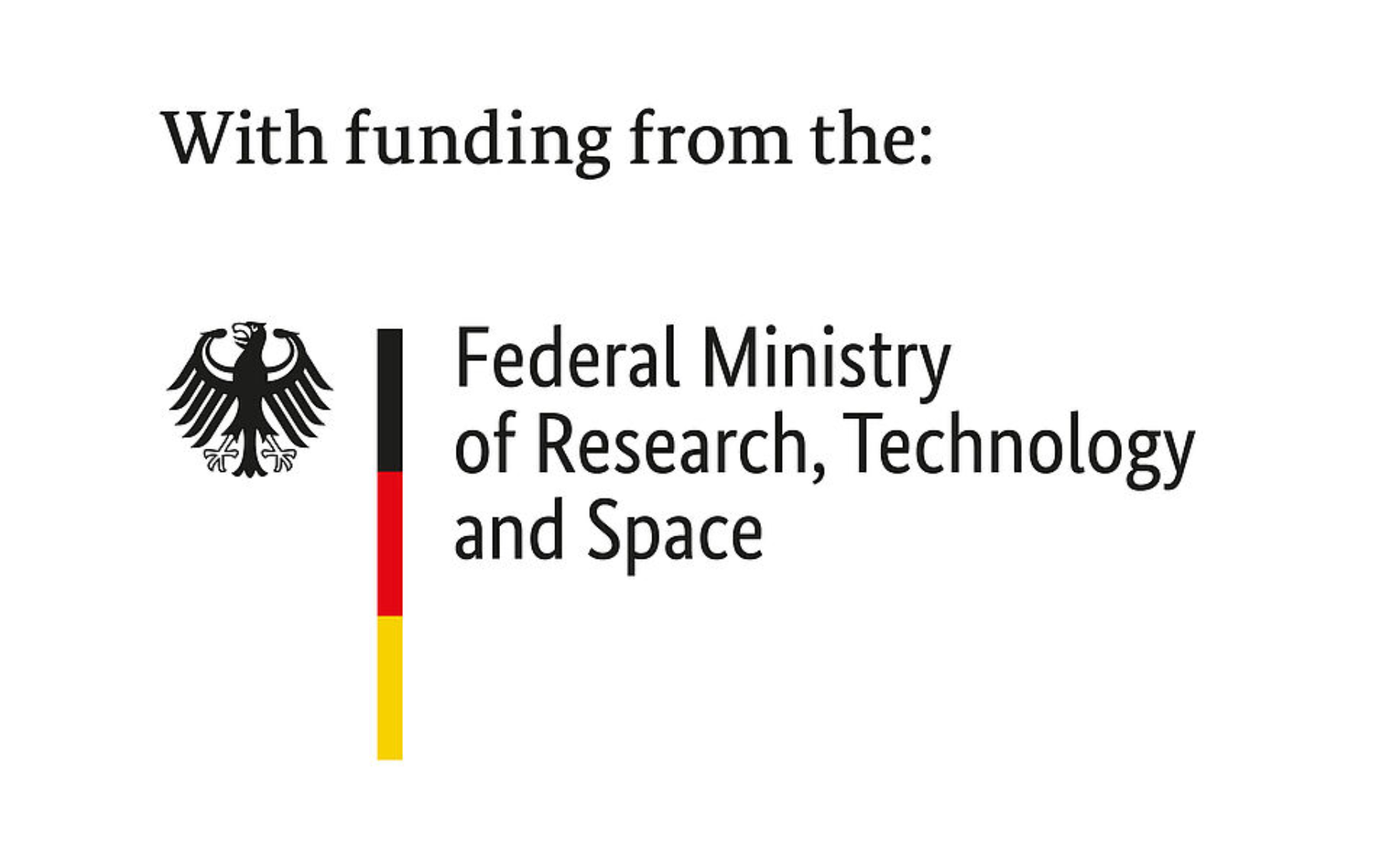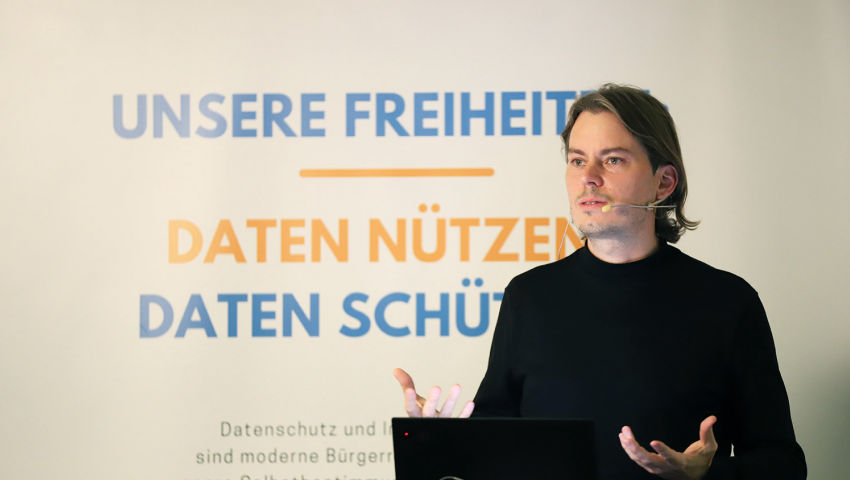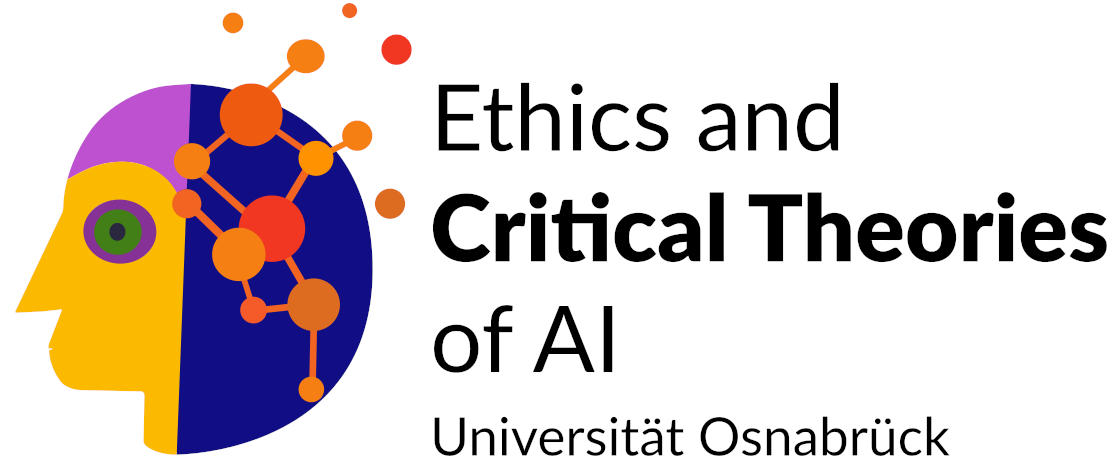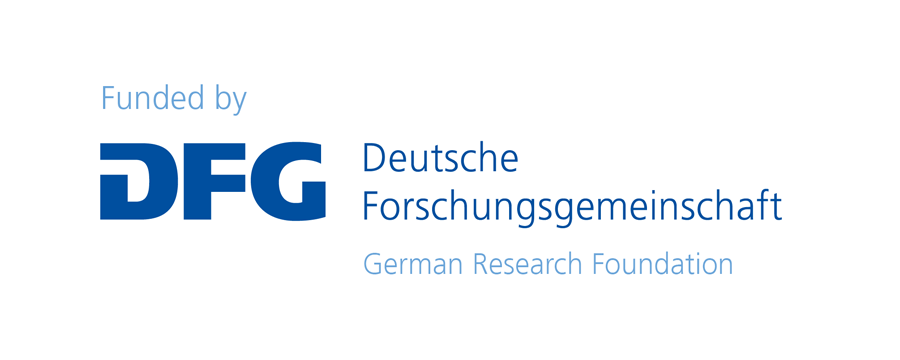Ethics and Social Philosophy of the Digital Society
Research output About Rainer Team
Watch
NANO Talk (3sat/ZDF), 22 Jan. 2026: “New Colonialism – Struggle for Power in New Spheres”, hosted by Stephanie Rohde, with Rainer Mühlhoff, Lena Ulbricht and Aram Ziai. Languages: 🇩🇪
Purpose Limitation for AI (with Hannah Ruschemeier). Chaos Communication Congress 38c3, 29 December 2024, Hamburg, Germany. Languages: 🇩🇪 + 🇬🇧 live translation Watch:
AI – Power – Inequality: Chaos Communication Congress 37c3, 28 December 2023, Hamburg, Germany. Languages: 🇩🇪 + 🇬🇧 live translation Watch:
News | Dates
Marie-Luise Angerer Lecture, transmediale, Berlin
It is my honor to co-present at this year’s Marie-Luise Angerer Lecture at the transmediale Festival in Berlin. With Teresa Castro and Katja Davar, moderated...
Talk Show Guest on NANO Talk (3sat)
Broadcast on 22 January 2026, “New Colonialism – Struggle for Power in New Spheres,” hosted by Stephanie Rohde, with Rainer Mühlhoff, Lena Ulbricht and Aram ...
Keynote: Democracy and the Ideological Power of AI, Academy for Civic Education, Tutzing
Keynote on my book “AI and the New Fascism” (Reclam) as part of the conference “On the Way to Digital Authoritarianism? Current Social and Ethical Questions ...
Keynote at the Weizenbaum Institute, Berlin: The Power of AI – From Tech Ideologies to New Authoritarianisms
🗓️ Thursday 20 Nov. 2025, 18:30–20:00 Uhr 📍 Weizenbaum-Institut, Hardenbergstraße 32, 10623 Berlin
New BMFTR Project: Artificial Intelligence and Democracy
The Federal Ministry for Research, Technology and Space is funding our project “AI and Democracy: Rule of Law, Participation, Sustainability” from January 1 ...
What’s Left? The dark side of Silicon Valley: Tech Elites vs. Democracy”
Discussion at Friedrich-Ebert-Stiftung, with: Francesca Bria, Aya Jaff, Tim Klüssendorf, Rainer Mühlhoff.
At Topoi e.V. in Berlin: “AI and the New Fascism”
Public lecture and discussion at Topio e.V. on my book AI and the New Fascism (Reclam, 2025). In German.
Video: Keynote at “KI-Woche des LfDI Baden-Württemberg” in Stuttgart
🗓️ Montag 3. November 2025, 16:00 Uhr 📍 Lautenschlagerstraße 20, 70173 Stuttgart
At the Frankfurt Book Fair / Open Books Festival
Reading and discussion of my book “Artificial Intelligence and the New Fascism” (Reclam 2025) at the Open Books Festival as part of the Frankfurt Book Fair. ...
Volksbühne Berlin, Red Salon: Book Launch and Discussion “AI and the New Fascism” [sold out]
As part of the series “Parole Text: Book”, the Red Salon will host an evening of presentation and discussion of my new book “Artificial Intelligence and the ...
We’re hiring! Open Positions in the Ethics and Critical Theories of AI Research Group
Join our team! In my research group, new positions will soon be available at all levels (interim professorship, postdoc, Ph.D., student assistants).
“AI Tools in the Classroom?” – Radio Feature on Deutschlandfunk Kultur, Political Feuilleton
My position on the risks and shortcomings of automated feedback and grading tools in the classroom: radio feature on September 25, 2025, 7:20 a.m., Deutschla...
New DFG Project: Predictive Knowledge is Power
Our interdisciplinary research project “Predictive Knowledge is Power: Ethics and Law of Collective Privacy in the Data Society” (with Prof. Dr. Hannah Rusch...
Live on WDR5 Radio – “The Philosophical Radio”
On September 1, 2025, I will be a guest on WDR5’s Philosophical Radio. Together with host Jürgen Wiebicke, I will talk about my book “Artificial Intelligence...
At Deutschlandfunk Radio, Sein und Streit, with Simone Miller: “AI fascism made in Silicon Valley”
Thanks for the great conversation on book “AI and the New Fascism” (in German).

